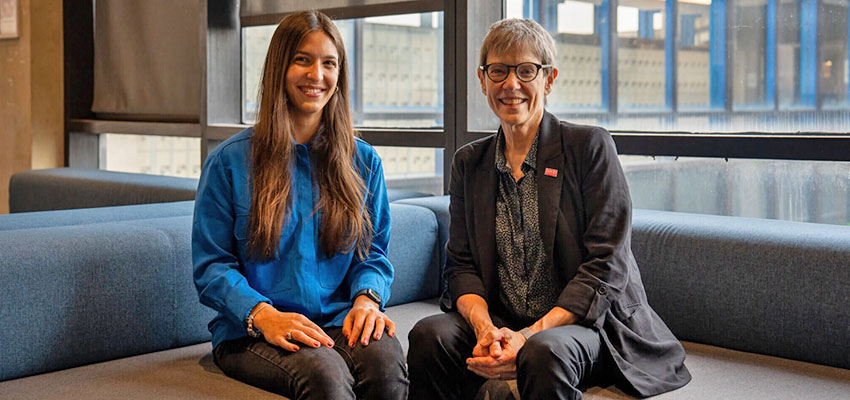
Philosophy doctoral student Sonia Pavel examines how public education influences our identities and social roles.
Original article on MIT SHASS website
Excerpt
Investigating these questions, along with encouragement from her advisors and an opportunity to study with MIT philosopher Sally Haslanger – whose work on gender and race inspired her as an undergraduate – led her to graduate study in philosophy. “Their guidance helped me understand the work and commitment I needed,” she says.
Haslanger has been Pavel’s primary mentor and philosophical role model, significantly shaping her ideas and supporting her every step of the way. Haslanger described Pavel as a “remarkable philosopher” from whom she has learned a tremendous amount.
“She came to MIT with a deep background in multiple philosophical traditions, and has drawn on this, together with her broad interdisciplinary curiosity, to make an important contribution to political philosophy and the philosophy of education,” Haslanger says. “Her dissertation not only addresses pressing contemporary issues such as authority over school curricula and parental rights, but also promises to recenter education as a central task of a polity and one that has significant theoretical implications.”
MIT’s philosophy program, Pavel asserts, is among the world’s best, popular among undergraduates and good for graduate students’ intellectual lives.
“Faculty devote lots of time to mentor and support students,” she says.
MIT philosopher Tamar Schapiro and political scientist Bernardo Zacka also helped Pavel solidify her areas of interest. “Schapiro shaped my historical sensibilities by helping me integrate history into my ethics and political philosophy work,” she says, “while Zacka, a brilliant political theorist, gave me the confidence to pursue an unusual area of inquiry in my work.”
“I think that D-Lab is a gem and I hope MIT recognizes its value,” she says.
Pavel made sure to immerse herself in experiences that allowed her to deepen her commitment to humanities education while working closely with students from other disciplines. She singles out MIT D-Lab and the Gender and Development course taught by both Haslanger and Associate Director for Practice Libby McDonald as a great incubator for ideas and a practice-based approach to scholarship.
“I think that D-Lab is a gem and I hope MIT recognizes its value,” she says.
“D-Lab,” Pavel continues, “tries to cultivate ‘creative capacity building’ in the communities where its work occurs and makes partners and co-designers of the community members and the proposed solutions rather than handing a solution to a community.” Education, Pavel argues, should also embody creative capacity building by inviting students to collaborate on the educational process and increase their stake in the outcomes.
More information
MIT D-Lab class Gender and Development

